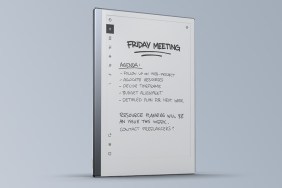You dirty, dirty paddle, you!
If you can remember dropping quarters or firing up your Atari 2600 to play a round of Breakout or Arkanoid, congratulations! You are part of the demographic that we now affectionately refer to as “old”. And if you still frequent websites like GR, well, you’re probably going to be buried with a…
-
Enough twists to keep an old formula fresh
-
Cool boss fights
-
Naughtily named gameplay mechanics











